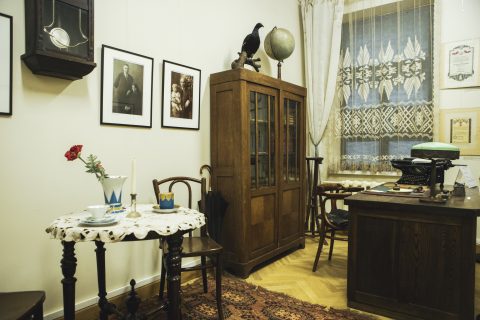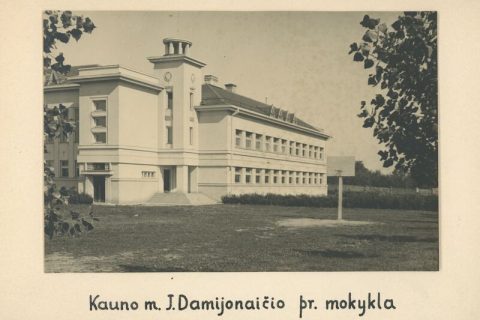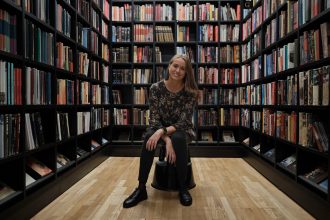In a conversation about the history of the Museum of Lithuanian Education History, its head Jolita Rudgalvienė mentioned the Museum on Wheels project. Although it will only start traveling around Lithuania next year, now is a good opportunity to find out what kind of experience it will offer.
The team led by Jolita is currently preparing for the launch of the first mobile museum in Lithuania. While analyzing visitor statistics, the museum’s employees saw that there were almost no guests from the regions and began to look for ways to change this. The solution is truly modern – a mobile museum-bus will soon be going on the road. It will provide high-quality cultural education to young people also promoting the accessibility of cultural and educational activities in the remote parts of Lithuania.
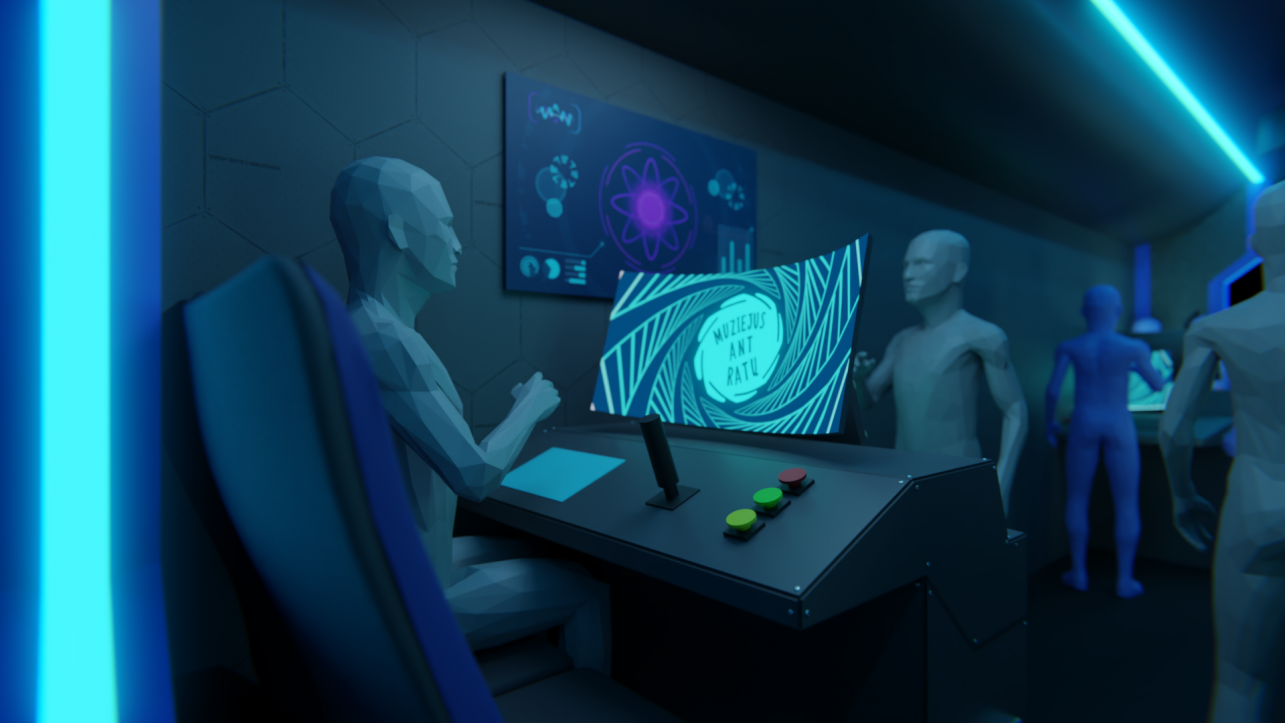
According to J. Rudgalvienė, the solution to the problem came from traveling, reading a lot and being interested in cultural issues. “While going on expeditions, we saw small towns and settlements where children had never been to a museum, so the desire to do something about it arose. I also read the museum development theory where the issue of museum mobility has been raised since 2012. George Pompidou Center in Paris was the first museum to create a mobile exhibition and travel with it to the regions. The same initiative was created in Germany. The large car manufacturing companies teamed up with museums and helped to prepare traveling exhibitions. Everything finally came together when I heard about the virtual reality experience Field Trip to Mars in 2016. This campaign created by defense, aviation and high-tech corporation Lockheed Martin received as many as 19 awards at the Cannes Lions festival. I highly recommend watching it. Immediately after that, we started working with KTU researchers, thinking about the bus, LED screens and all other possibilities.”
The change in travel planning habits during the pandemic and the long-lasting inconsistency of cultural service availability in the regions of Lithuania, which highlighted the problem of public involvement in cultural life very clearly, contributed to all this. And the museum’s team saw an opportunity to create something new and unusual. “A mobile museum is like a time machine that will travel around Lithuanian regions and spread the word about the country’s education history. In this way, while playing, children will be able to get acquainted with writing, the environment, learning tools, clothes and many other things. And these are not lessons but a game that the children will choose themselves,” Jolita said.
Listening to the interviewer, I wondered how it will all look. Well, very simply and conveniently: all the equipment will be removed from a low-floor bus and the museum’s exhibits will be showcased inside. As Jolita mentioned earlier, the equipment will be installed like a time machine. It will allow the visitors to visit several historical periods. And I have no doubt that the Museum of Lithuanian Education History will become an active participant in the dissemination of culture in Lithuanian regions. “Indeform, video technology and interactive product development professionals, and Newschool, developers of modern education programs, will join the team. With the help of these partners, we will present to the public the events in the history of Lithuanian education that led to social, cultural and political changes.
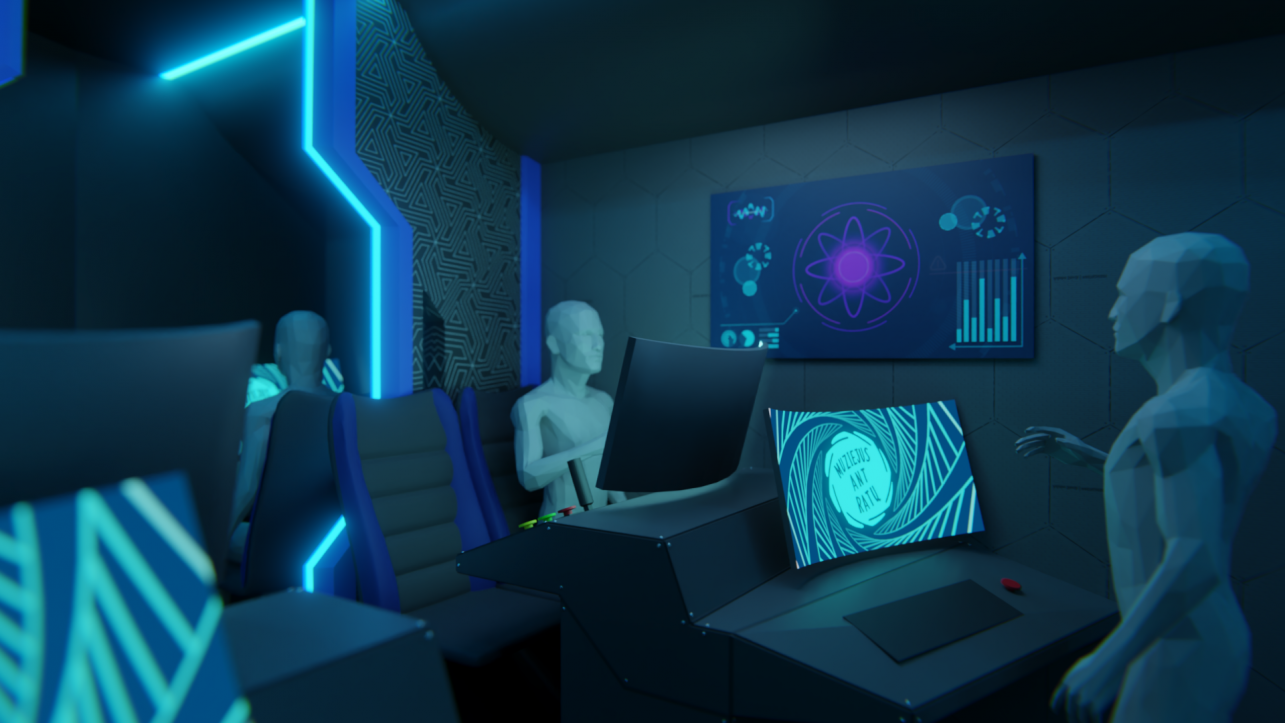
During the two years of project, we plan to visit as many as two hundred locations throughout the country. More than six thousand residents of Lithuania’s regions will see the interactive exhibition. The important educational mission will be nurtured even after the project implementation period. The plan is for the bus to continue traveling around Lithuania for another five years,” the museum’s director says.
After inquiring whether there were many interested in the regions, I heard that there was not a single region that refused. “We sent inquiries to know who would like to participate. Everyone joined really enthusiastically, we have a huge table with lists.
According to the plan, we will start the trip in Žemaitija, but I think that each case will be coordinated separately to make it convenient for the children, because a lot has really changed in the last year. But everything is planned, everyone is waiting for us, and we have a very interesting two years ahead of us. We hope that we will be able to start the journey in the first months of the new year.”
The presentation of the project mentions that the mobile museum exhibition will broaden the cultural horizons of the people living in the regions, and I couldn’t agree more. The smaller population in the regions and their lower purchasing power determine the deficit of cultural services, and young people living in rural areas do not even have the opportunity to receive quality cultural services close to home. This project is a great opportunity to solve a sensitive problem and thus at least partially build a cultural connection with local communities and contribute to solving the issue of cultural accessibility in the regions.

